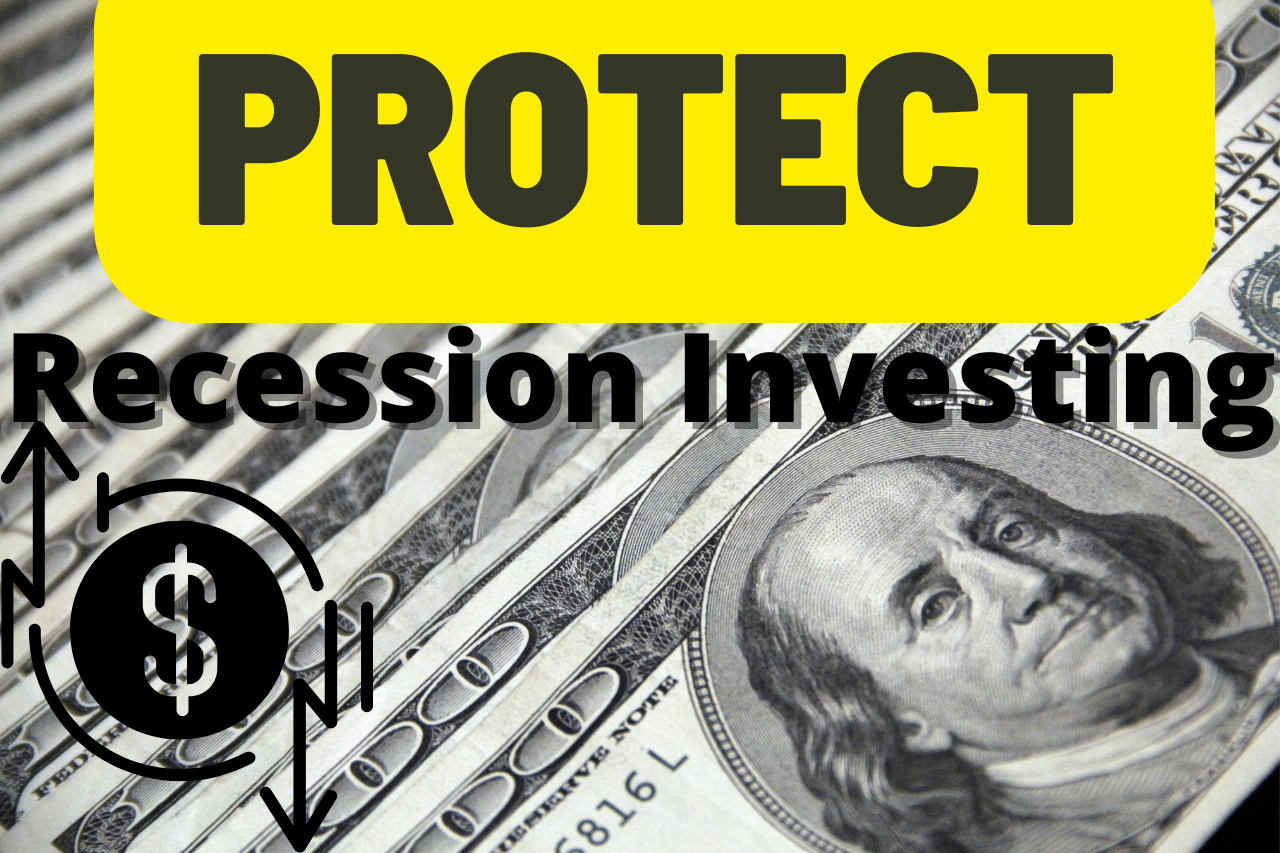A recession can be a worrying time for any investor, but it doesn’t have to be a struggle when you know what to do. Here are a few things you can consider when investing during the 2023 recession.
“A recession with US debt/GDP at 125% and deficits at 6%/GDP will absolutely, 100% be calamitous.“
— Luke Gromen (@LukeGromen) August 30, 2022
What Is a Recession?
A recession is a drop in economic activity over at least six months. The definition of what triggers a recession can vary, but some of the more common signs of a recession include a drop in consumer spending and industrial production, rising inflation, higher unemployment rates, and low wage growth.
Why Recessions Are Great Investment Opportunities
You can invest during a recession to make the most of your money. Some stocks or assets may be undervalued by the market, while others may have business models more resilient to recessions. Declines in asset prices also make them more affordable, plus there’s always the potential that their values will rise as the recession eases.
Risk Management During a Recession
The best way to invest in a recession in 2023 is to understand the risks of doing so and find ways to keep your risks in check. There are a few things you can do during a recession to control your risk:
- When investing in stocks or companies, look for consumer staples or healthcare stocks. These stocks are more resilient because they entail things people will still spend money on even during a recession.
- Look for items that tend to rise in value during economic downturns. Precious metals are appealing examples.
- Be sure you only divide an amount of money for investing you can afford to lose if an investment doesn’t work well. Spreading your funds among many assets helps.
Diversify Your Portfolio

Looking to recession-proof your investment portfolio, you will need to diversify your portfolio with at least 7-10 assets that have less correlation between them.
According to Amir Baluch, the founder of Financial Wellness MD and author of Make It Keep It, “Experienced investors who have been through these cycles before shield their wealth from these economic changes (and benefit from them) by investing much more in alternative assets than the public stock market, bonds and cash. They choose investments with much less correlation, such as: private equity investments, real estate, promissory notes and debt investments, cryptocurrencies and precious metals.”
Diversification is critical to help improve how well you manage your risks. It involves investing in various assets like stocks, bonds, and commodities.
Diversification helps balance your risk, as one investment could perform better than another. Every investment operates differently, so investing in various things is ideal for your success.
Retirement Investment Portfolio Protection Strategies
Recession-proof investing is possible when you use the best measures. There are a few things you can do to protect yourself:
- Rebalance your existing portfolio by reviewing which assets are underperforming and could be replaced with something more viable.
- Look for non-correlating assets that do not react the same way as certain stocks. The price of gold during recessions may not correlate to the values of stocks, for example.
- Long-term investing is essential in many situations, including in cases where the historical returns on assets are positive.
- Diversification should involve investing in multiple sectors and fields, but diversifying your investments into small, mid, and large-cap assets can also help. You could also consider emerging markets when finding new investment options.
Safe-Haven Assets
There are many safe-haven assets you can consider during a recession. These items will continue to perform even when the rest of the economy struggles.
<<Find Out How to Rollover Your IRA To a Silver IRA>>
Precious Metals
You can start by investing in precious metals like gold and silver. The demand for precious metals typically increases during a recession, which makes them a good choice for alternative IRA options. There are very reputable gold and silver IRA companies. Please read our review of Augusta Precious Metals who is our top ranking gold IRA company for professionals, serious investors, and high net-worth individuals.
The price of gold during a recession will likely increase in most situations. The recession gold price is often independent of stock performances, as it is mostly stable. Gold prices in a recession also often counter changes in the S&P 500, meaning the price could rise as the S&P 500 drops in value.
Silver prices often drop as a recession starts due to a drop in industrial production. But silver prices during a recession often rebound and reach new highs as the recession progresses, thanks to the eventual rise in production rates. International demand for silver in other areas will remain untouched, as a recession typically impacts only one country. Silver performance during a recession may also mirror how well gold performs.
Bitcoin
Bitcoin and other cryptocurrency investments are also exciting to spot. Cryptocurrencies during a recession will often drop in price as the recession starts. Their values often correlate to tech stocks that will fall due to a lack of production and consumer spending. But the price of Bitcoin during a recession can continue to rise as consumer confidence starts rebounding. The continued interest in Bitcoin and other currencies in international markets will make investing in crypto during a recession appealing. For those looking to broaden their financial retirement portfolio into a Bitcoin IRA, that has a strong reputation for security and safe-guarding their customer's crypto assets, look into Bitcoin IRA as a viable crypto IRA option.
Consumer Staples
Consumer staples refer to essential products consumers buy, including food and drink, household goods, and hygiene products. Stocks in companies that make these staples are ideal recession-proof investment options, as people will continue to spend on these items. Grocery stores and discount retail chains are also appealing recession investment options.
Utility Companies
You can also invest in utility companies that people still rely upon during a recession. Utility companies are responsible for providing electricity and gas even when the economy struggles.
Healthcare
Healthcare is essential to all people, including during recessions. Healthcare stocks are safe-haven assets for how their services will remain in demand. Healthcare service provider stocks and pharmaceutical stocks will be the most appealing choices for investing needs.
What Not To Invest In a Recession – Risky Investments
Not everything will be a worthwhile investment during a recession. Avoid investing in the following:
- Highly leveraged stocks with significant debt loads on their balance sheets
- Cyclical stocks that depend on times when people have discretionary income
- Speculative investments that are heavily influenced by consumer sentiment
Mindset To Invest In a Recession
Be sure when you invest in a recession that you have a plan for whatever may happen. You cannot predict when the recession will end or how deep it will go. There are a few things you can put into your investment mindset during a recession:
- Be cautious when spending new money on investments. Keep a limit to how much cash you wish to spend on investments.
- Review the potential for an investment to rise in value over the next few years. Anything you want to support should have the potential to keep growing even after the recession ends.
- Never invest in anything you have never heard of, as doing so might put you at a disadvantage.
- Be willing to invest in secure Alternative Asset IRAs, ETFs, and other assets that can diversify your portfolio.
<<Sign Up for a Silver IRA FREE Web Conference Today!>>
Risk Disclosure: Any investments come with an inherent risk, where you could end up making less money than what you put in. Before investing your hard-earned cash, be sure to speak with licensed professional financial advisor first. Always remember that past performance is not an indication of future returns.
Disclaimer: The website's owners of Cryptowealthbay.com may be compensated for suggesting certain businesses, goods, and services. While we do everything possible to verify that all of our content is accurate, the information we provide may not be impartial or unbiased, and it does not constitute financial advice.



